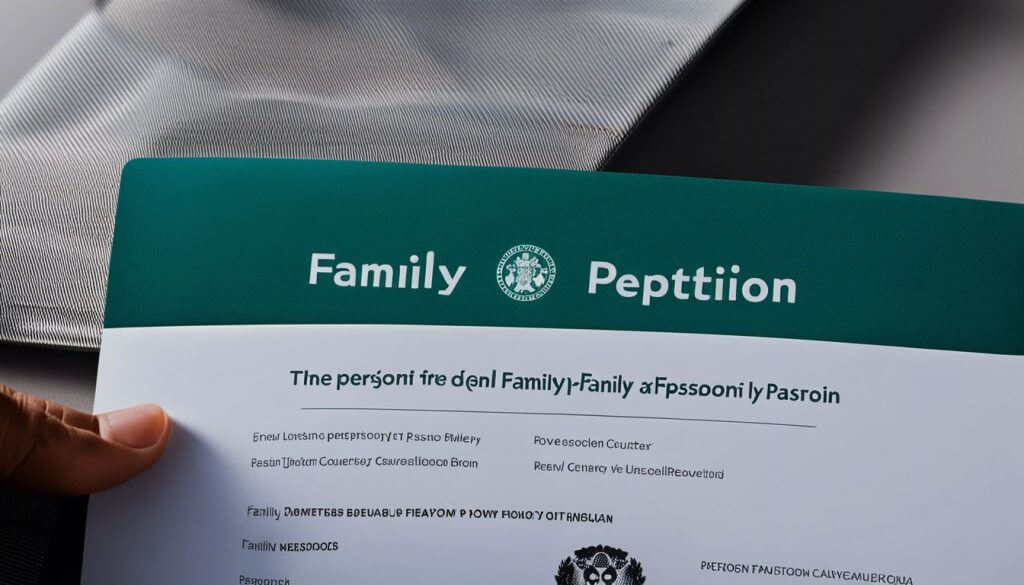Family has consistently stood as a cornerstone in society, and this is evident in the immigration policies of the United States. In fact, family reunification is one of the main objectives of the country’s immigration law. It allows U.S. citizens to petition for their foreign relatives to reside in the country.
A common question in this area is, “can a citizen sibling petition a married sibling in the USA?” The truth is that it is a process that comes with its own set of rules and procedures. Jaskot Law answers the question and gives you all the details.
Sibling-to-sibling petition, is it possible in the United States?
The answer to this big question is YES, a citizen sibling can petition for a married sibling to immigrate to the United States. This process is done through the immigrant visa petition in the F4 family preference category.
Upon approval of the petition and once a visa in that category becomes available, the alien sibling, married or unmarried, and his or her children under the age of 21 (if present) may be eligible to obtain permanent residency and join their U.S. citizen sibling in the country.

Can a citizen sibling petition a married sibling? Eligibility Criteria
The sibling reunification process is subject to a series of eligibility requirements that the petitioning citizen (petitioner) and his or her alien sibling (beneficiary) must meet. These include:
- Petitioner’s citizenship: The petitioner must be a U.S. citizen and must submit documentation proving citizenship, such as a U.S. passport or a certificate of naturalization.
- Age of petitioner: the U.S. citizen must be 21 years of age or older to be eligible to sponsor a sibling.
- Legitimate family relationship: They must prove that they have a legitimate sibling relationship, which implies sharing at least one parent, either biologically or through legal adoption. It is necessary to provide birth certificates, adoption certificates or documents certifying the relationship.
- Willingness to sponsor: The U.S. citizen must complete and sign Form I-130, Petition for Alien Relative, which evidences their intent to sponsor their sibling.
- Evidence of financial ability: The petitioner must demonstrate the financial ability to support the immigrant sibling by submitting a Statement of Financial Support (Form I-864) to meet the income or asset requirements.
- Petitioner’s U.S. permanence: The petitioner must reside in the United States or have a lawful permanent residence if residing abroad, with the intent to continue living in the U.S. once the sibling immigrates.
- Beneficiary’s marital status: Unlike other family preference categories, there are no restrictions on the marital status of the foreign sibling; they may be single or married.
- Beneficiary’s children: If the beneficiary sibling has children, they can be included in the petition as long as they are unmarried and under 21 years of age.
- Payment of Fees: The appropriate fees must be paid to USCIS at the time of filing the petition, as well as any other fees associated with the immigration process during the subsequent stages.
Upon meeting these requirements, a citizen sibling may petition for a married sibling through this procedure, which can be lengthy and complex. If you have any doubts or need advice, the team of lawyers at Jaskot Law can help you. Contact us!
Sibling-to-sibling petition process
This type of petition involves a meticulous process involving several key steps and the participation of several government agencies. Here we detail each stage of the process for a better understanding and organization:
Eligibility Verification
Before beginning the process, the U.S. citizen must ensure that he or she meets all the requirements necessary to sponsor a sibling.
Documentation Preparation
The petitioner must gather all necessary documents, including proof of citizenship, proof of fraternal relationship, and any other documents required by the immigration authorities.
Filing Form I-130
The petitioner must complete and file Form I-130, Petition for Alien Relative Petition, with the U.S. Citizenship and Immigration Services (USCIS), along with the filing fee and supporting documentation.
Notice of Receipt and Decision from USCIS
After filing the petition, USCIS will send a receipt notice, indicating that they have received the petition and providing a case number. It will then review the petition and make a decision. If information or documentation is missing, they may send a request for additional evidence (RFE) to the petitioner.
Approval of the Request
If USCIS approves the petition, the case will be transferred to the National Visa Center (NVC), which will handle the next phase in the family reunification process.
Consular Processing
When a visa becomes available, the NVC will inform the beneficiary and request that he or she submits the necessary forms and documents for consular processing, including Form DS-260, Application for Immigrant Visa.
Interview at the U.S. Embassy or Consulate
The beneficiary must attend an interview at the U.S. embassy or consulate in their country of residence. He or she must bring all necessary documents, including the results of the medical examination.
Visa Decision
After the interview, the embassy or consulate will decide whether to grant the immigrant visa. If approved, the beneficiary will receive a visa package and will be able to plan his or her travel to the United States.
USCIS Immigrant Fee Payment
Before traveling to the U.S., the beneficiary must pay the USCIS Immigrant Fee in order to enter the country.
Entering the United States and receiving a Green Card
With the immigrant visa, the alien sibling will be able to enter the United States and will become a legal permanent resident upon arrival. Upon arrival in the country, the Green Card will be mailed to them.
This is the general overview of the family reunification process between siblings, although each case may have its particularities due to individual circumstances and immigration policies in force at the time of application.

In what year are the sibling-to-sibling petitions?
The petition for an alien sibling is one of the categories of family reunification that tends to have the longest wait times in the U.S. immigration system. This is so because there are a limited number of visas available each year for siblings of U.S. citizens.
The process is regulated by quotas established in the F4 family preference category. Below we detail how waiting times and fees influence the process:
| Annual fees and limits | Sibling-to-sibling petitions are subject to annual fees and a limit on the number of visas available each fiscal year. The F4 category has a guaranteed minimum of 7% of the total family preference visas available. With more applicants than visas available, a backlog is created, resulting in a wait that can last many years. |
| Priority date | The priority date is the date on which USCIS receives the completed I-130 petition and marks the beneficiary’s place in the “queue”. This date is crucial because it determines when the beneficiary will be eligible to apply for an immigrant visa. |
| Visa Bulletin | The U.S. Department of State publishes a monthly Visa Bulletin, which indicates the availability of visas for different categories and countries. Applicants should monitor the Visa Bulletin to verify when their priority date becomes effective, which means they can proceed to the next phase of the process. |
| Estimated waiting times | Waiting times may vary significantly depending on the beneficiary’s country of origin due to the high demands of certain countries that far exceed the established quotas. It is recommended to prepare for a process that may extend for more than a decade, depending on these and other factors. |
How much money does it cost to petition a sibling by family petition?
The petition process for family reunification in the sibling category involves several costs that must be considered by the U.S. citizen and his or her alien sibling. Among them are the following:
| Service | Cost (approximate) |
| Form I-130, Petition for Alien Relative | $535 |
| Consular Processing (Form DS-260) | $325 |
| Medical Examination | $100 – $500 |
| USCIS Immigrant Fee | $220 |
| Document translations and notary services | Variable |
| Courier and shipping rates | Variable |
It is essential to keep in mind that these costs are tentative and may change due to updates in government tariffs or variability in additional services. Keep yourself always informed and do not hesitate to contact Jaskot Law to answer all your questions.
Conclusion
In conclusion, a citizen sibling may petition for a married sibling to reside in the United States. Although the process is lengthy and involves significant costs, the possibility of reuniting families provides hope and shows the value the United States places on family ties.
By understanding the process, preparing for waiting times, and being mindful of the costs involved, petitioners can successfully navigate the path to family reunification. Achieve reunification with the team of Jaskot Law!
Sources
Form I-130, Petition for Alien Relative
Statement of Financial Support (Form I-864)
Frequently Asked Questions
Can a sibling-to-sibling petition be expedited if the sibling is married and has children?
No, there is currently no process to expedite a sibling-to-sibling petition based on the beneficiary’s marital status or whether the beneficiary has children. The process is subject to a quota system and family preference category that determines visa availability without considering a specific family status. All applicants must wait for their priority date to become effective.
Can my brother in the USA apply for residency for my spouse and children as well?
Yes, when a U.S. citizen sibling files a petition for a married sibling, the sibling’s children under the age of 21 and spouse may be included in the same petition as derivatives. This means that they can immigrate to the United States along with the principal sibling beneficiary of the petition.
What happens if my citizen sibling dies while my petition is pending?
If the citizen sibling who filed a petition dies before the immigration process is completed, the petition may be revoked. There are certain circumstances under which the petition may be continued, such as requesting a replacement sponsor or through a humanitarian petition. It is advisable to seek the advice of an immigration attorney in these cases.
How can I check the status of my sibling-to-sibling petition?
The status of the sibling-to-sibling petition can be verified online through the USCIS website by using the petition receipt number. It is also possible to call the USCIS contact center or, if the case has been transferred to the National Visa Center (NVC), contact the NVC directly for updates.
Can my brother in the USA withdraw the petition after it has been initiated?
Yes, the U.S. citizen petitioner has the right to withdraw a sibling-to-sibling petition at any time before the immigrant visa is issued. To withdraw a petition, the citizen must send a written request to USCIS. This will stop the sibling’s immigration process.

